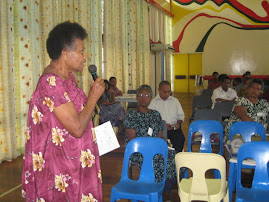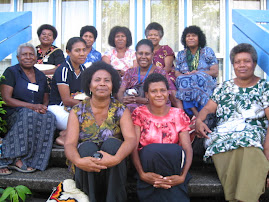Project Aim
Through collective action, this project aims to raise awareness on the importance of Gender Responsive Budgeting at all levels of government in Papua New Guinea (PNG). However, the initial approach to undertaking this is to gather information and build connections among stakeholders who have similar interests or who are working on related activities in order to promote and raise awareness on the importance of ‘Gender Responsive Budgeting’ in PNG. The long term aim would be to build networks and partnerships among groups and individuals to influence policy decision making at different levels of government so that budgeting, planning, legal and policy reforms would be gender friendly.
Project Rationale
This project is necessary because, though the government of Papua New Guinea (PNG) has committed itself to a number of international conventions in promoting and recognizing gender equality, its policy response to implementing these commitments is very little. In particular budgetary support, active involvement and participation of women in planning or even in important policy decision making processes is lacking. In addition, eventhough there is some evidence of tangible change occurring at some levels of government in recognizing the equal participation of women, there is a need for more aggressive education and advocacy, particularly, in budgeting and planning processes in order to take it to the next level. The expected impact would be many and important such as, groups would have the chances of acquiring knowledge of the concept, which would then equip them to analyse budgets and critique to promote budget transparency and accountability, to name a few.
Project Action
To achieve the project’s aim, I will be seeking information on the concept using participation and consultation methods. The information gathering would be through a two pronged approach. Firstly, I would seek information from groups in Brisbane that are working in similar programs to draw on their experiences which would compliment the theoretical knowledge acquired. Secondly, I would facilitate an initial discussion process online generally about the concept among the PNG student community of UQ as well as others back in PNG. This is to work out the general perception among Papua New Guineans regarding the initiative. I would then finally develop a way forward with that information – working through women’s agencies and networks, and in partnership with relevant development partners and state agencies.
Risk Identification
In undertaking the information gathering process, the risky situations would be that there is potential for receiving very little and poor quality information due to the time factor and the concept being a new agenda. The long term risks would be political implications, legal and policy implications, resource implications as well as coordination and administrative implications.
Any comments?
skip to main |
skip to sidebar






GRB for boys & girls

Links
Equal participation

Pages
Followers
Participation

Women advocates

Blog Archive
Small group discussion, Brisbane May 2010

Participatory action on gender empowerment
